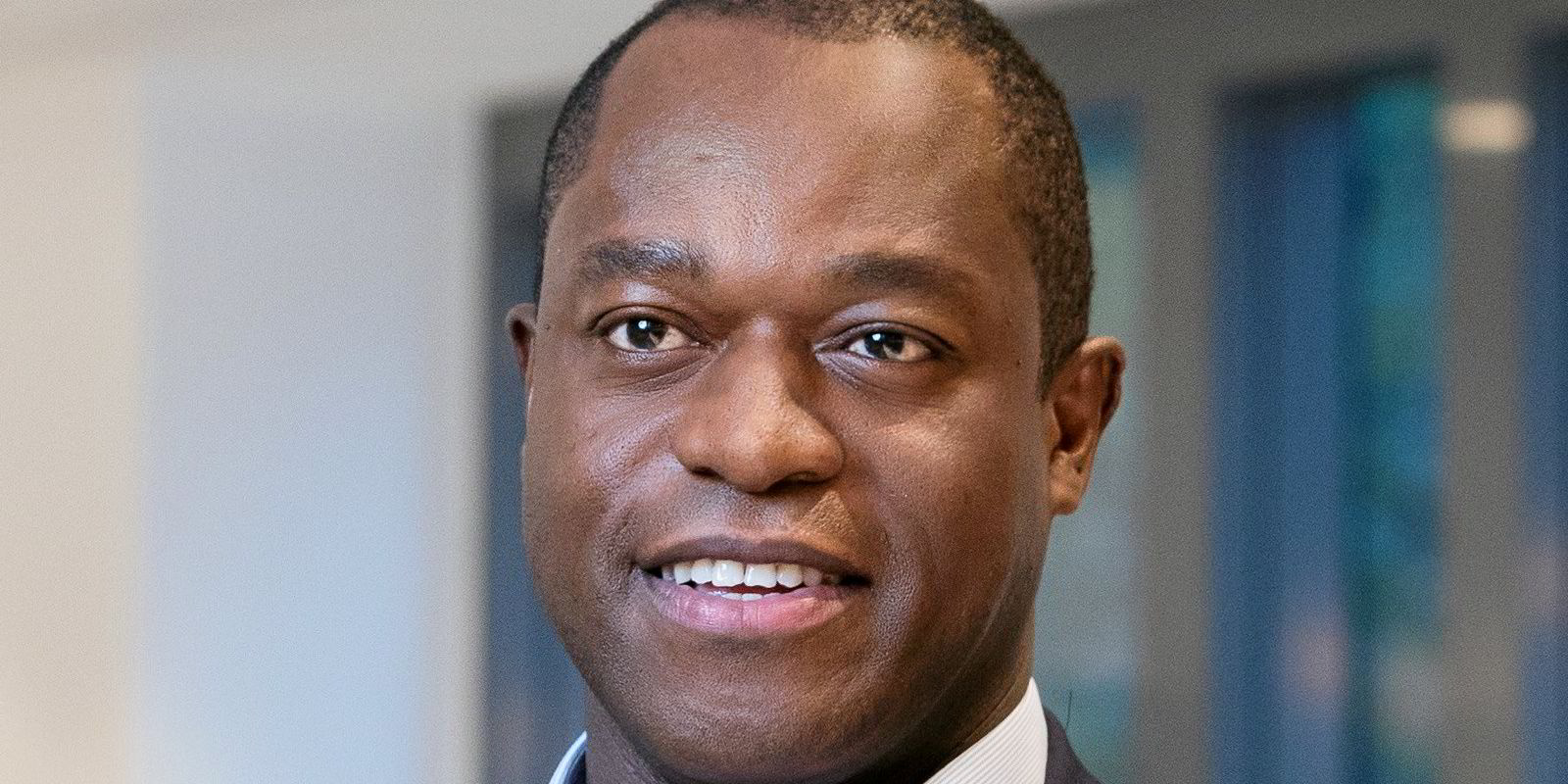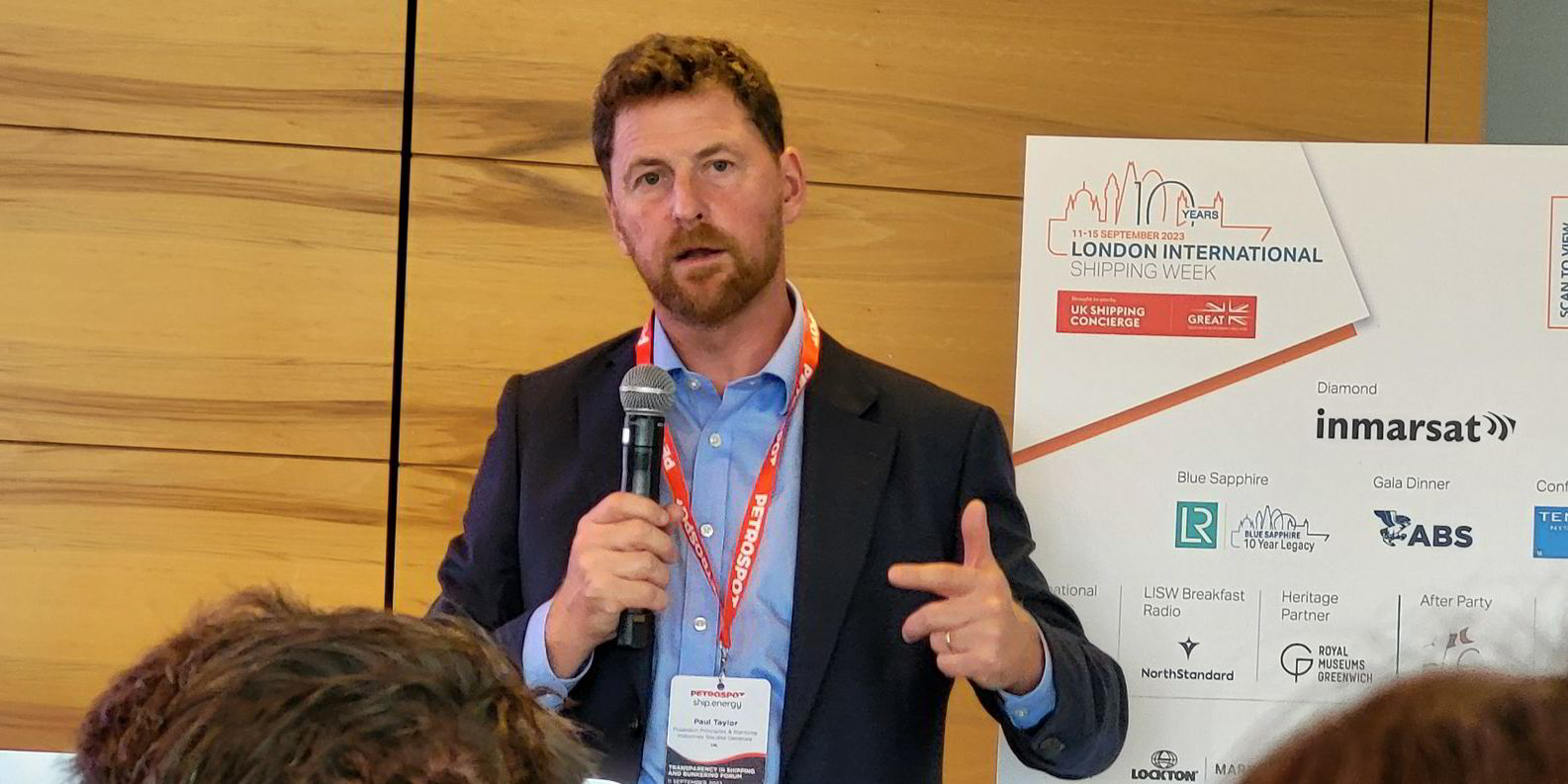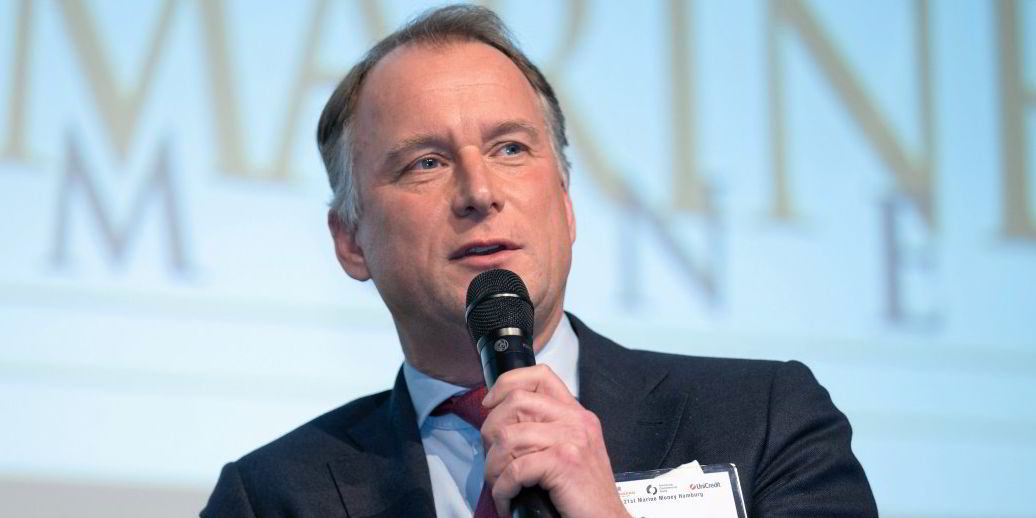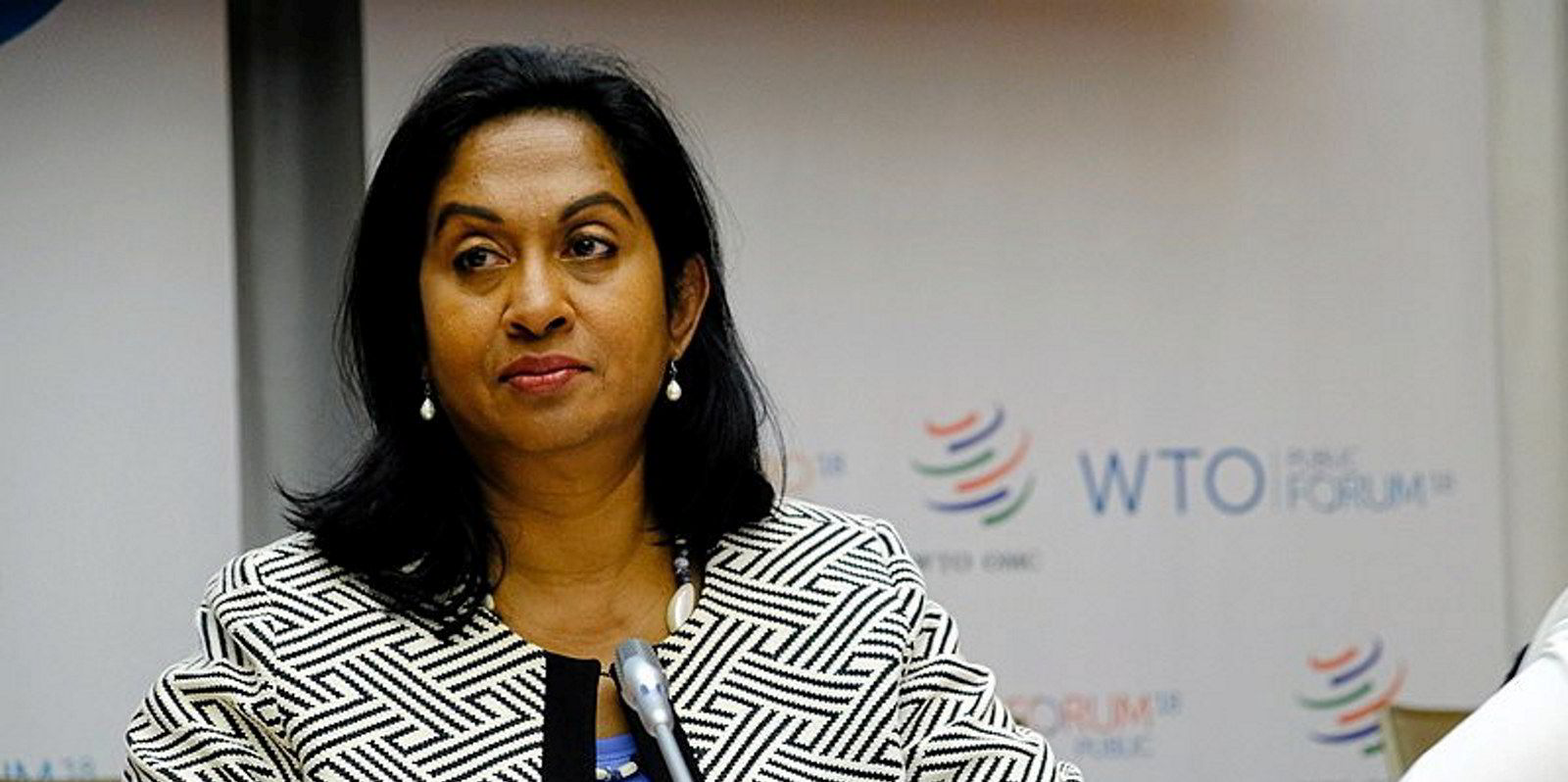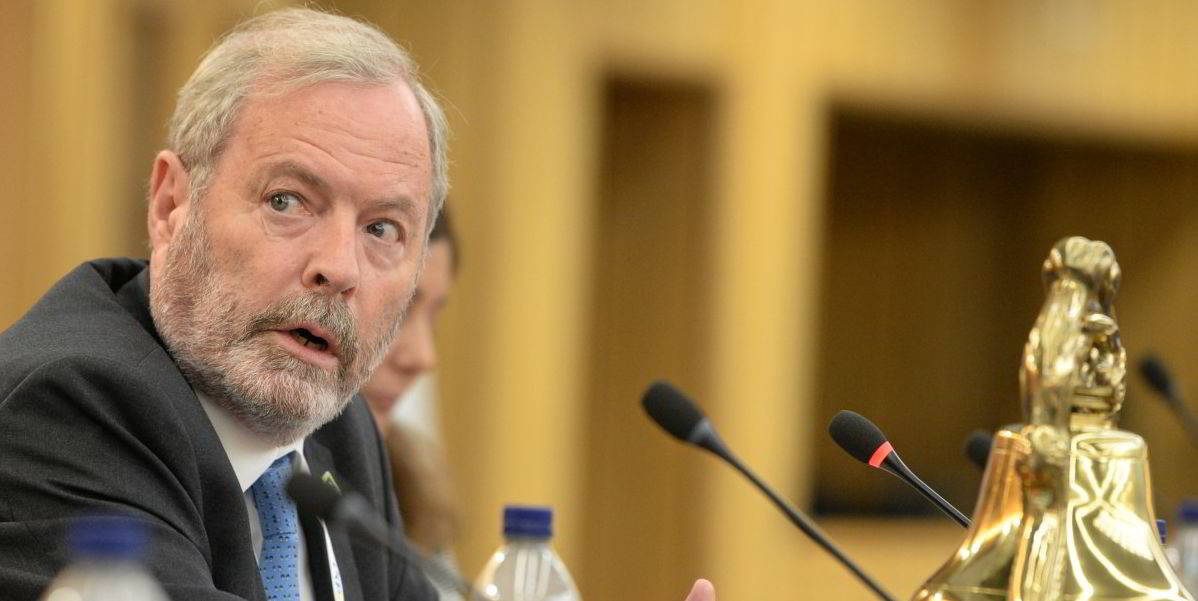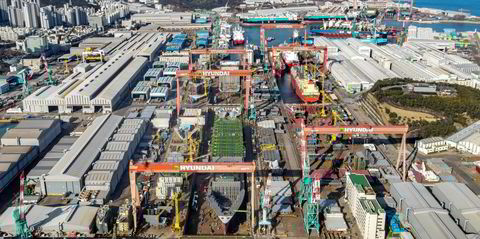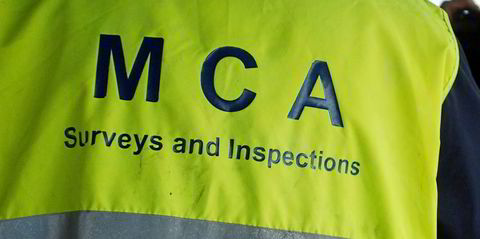Two giants of the French financial world are embarking on a project to raise and invest up to $1.5bn in sustainable shipping projects.
Private equity firm Eurazeo plans to make energy-efficient investments in new and secondhand vessels through a new private debt fund.
The Paris-based company has partnered up with French shipping lender Societe Generale to advise and possibly participate in the projects.
The Eurazeo Maritime Transition Fund (EMTF) is seeking to raise an initial $100m by early 2024, after which the initial funding will be deployed and further finance raised.
“The aim is to raise roughly north of $300m, which will enable us to reach close to $1bn to $1.5bn when including leverage,” says Sylvain Makaya, partner and leader of Eurazeo’s asset-based finance team.
Paul Taylor, global head of maritime industries at Societe Generale, added: “That’s the initial ambition for the fund, and if it goes well and there’s a great take-up, there’s no reason why that can’t be increased going forward.”
The fund will ramp up the involvement in the maritime sector of Eurazeo, a company supported by prominent shareholders including the David-Weill, Decaux and Richardson families.
The Euronext-listed firm entered shipping two years ago, raising $200m for small and medium-sized companies through the Eurazeo Sustainable Maritime Infrastructure (ESMI) fund.
The second fund, EMTF, will take that to the next level by targeting tier-one shipowners and large blue-chip owners with longstanding records.
It will engage in US dollar-denominated financing, which is a larger market than the euro-denominated ESMI, which focused on the European market.
Eurazeo is hoping to lure in institutional investors, pension funds, sovereign investors and family offices with returns of 9% to 10%.
“We expect strong shipowner interest and hopefully investor interest,” Taylor said.
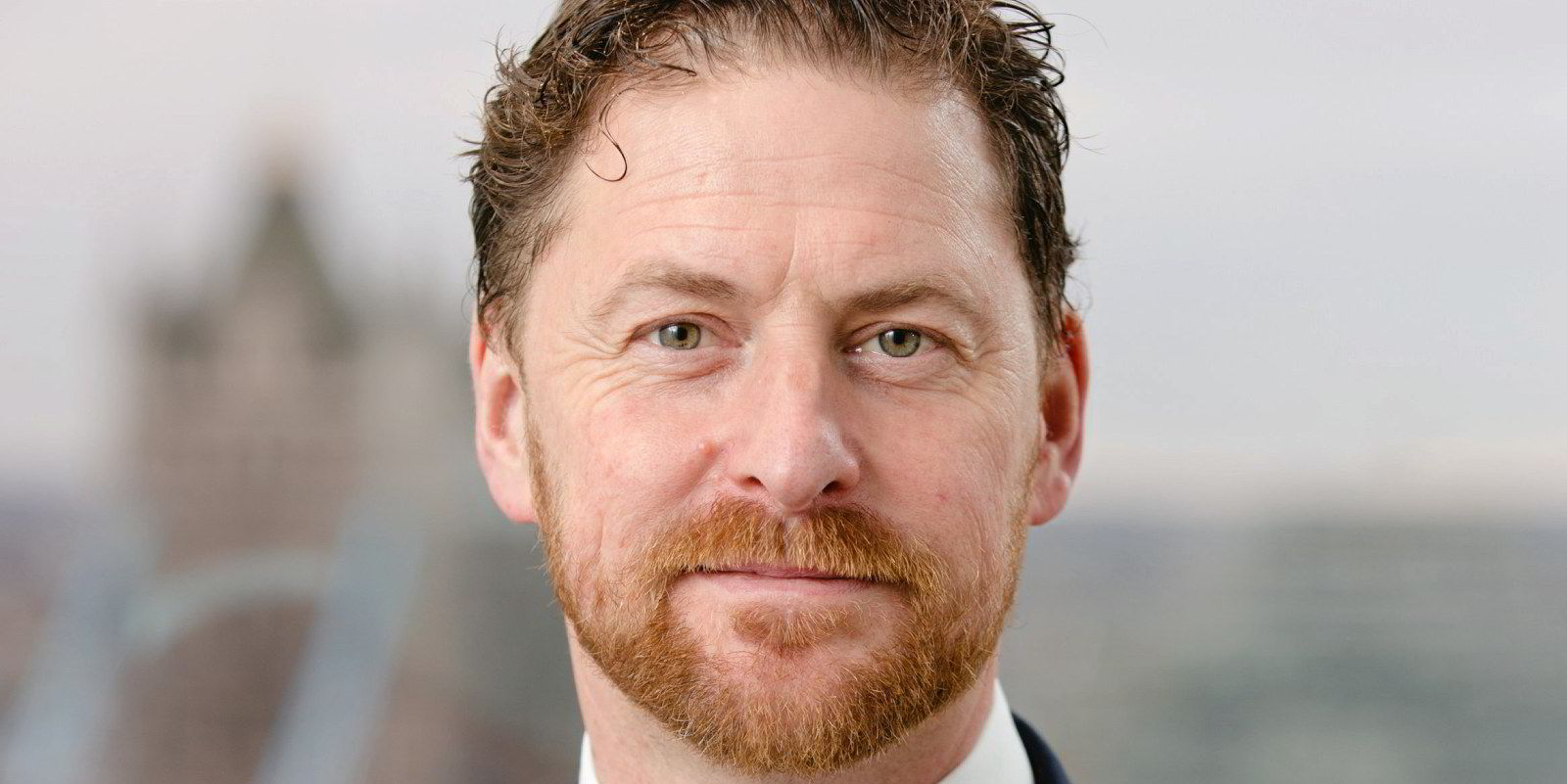
Not agnostic
Using a sale-and-leaseback scheme, the debt fund will finance up to 100% of asset value for newbuildings with alternative fuels, as well as retrofits and upgrades.
The goal is a 10% efficiency improvement with regard to vessel operations.
That will be transparently measured by third parties, so it will be measurable, certifiable and visible, according to Taylor.
That inevitably means the fund is quite specific on the vessels that it targets.
“We’re not quite agnostic. This is an energy transition fund,” Taylor said.
“Any vessel that carries hydrocarbon as a cargo will not qualify for this fund.”
The fund will initially focus on existing vessels, which could be through a change in propulsion to alternative fuels, fitting of energy-saving propellers, bulbous bows or repainting.
That is likely to focus on container ships, dry bulk vessels, car carriers, ferries and possibly chemical carriers, depending on what they carry.
A second phase would provide 100% financing for dual-fuel newbuilds with alternative financing, including methanol or ammonia-ready vessels and those equipped with wind-assisted propulsion systems.
“The investment arm of the fund will be incentivised to see the fund achieves what it sets out to do,” said Taylor, who is also vice chair of the Poseidon Principles through which ship lenders are working to meet Paris climate targets.
“After all, this is a transition fund and improving the efficiency of vessels is key.
Critical start
“You’re not going to decarbonise purely through retrofitting but it’s a critical starting point with the existing fleet.
“The idea behind our project is that two of the biggest financial players in the French and European market have joined forces to address a key topic related to decarbonisation of the maritime sector.”
Makaya said: “The aim of the fund is to provide a financial solution to support the decarbonisation of the maritime sector, which is complementary to what banks can offer.
“It’s a step-by-step approach, but a complementary one.”
Eurazeo will make the investment choice as the general partner and alternative investment fund manager.
Societe Generale will advise on sourcing and identifying opportunities, helping to structure the debt and introducing investors.
Taylor said the fund fits the strategy of both companies: “This is a perfect vehicle as we promote a low-carbon future for the shipping industry, integrating climate considerations in every one of our credit decisions.”
